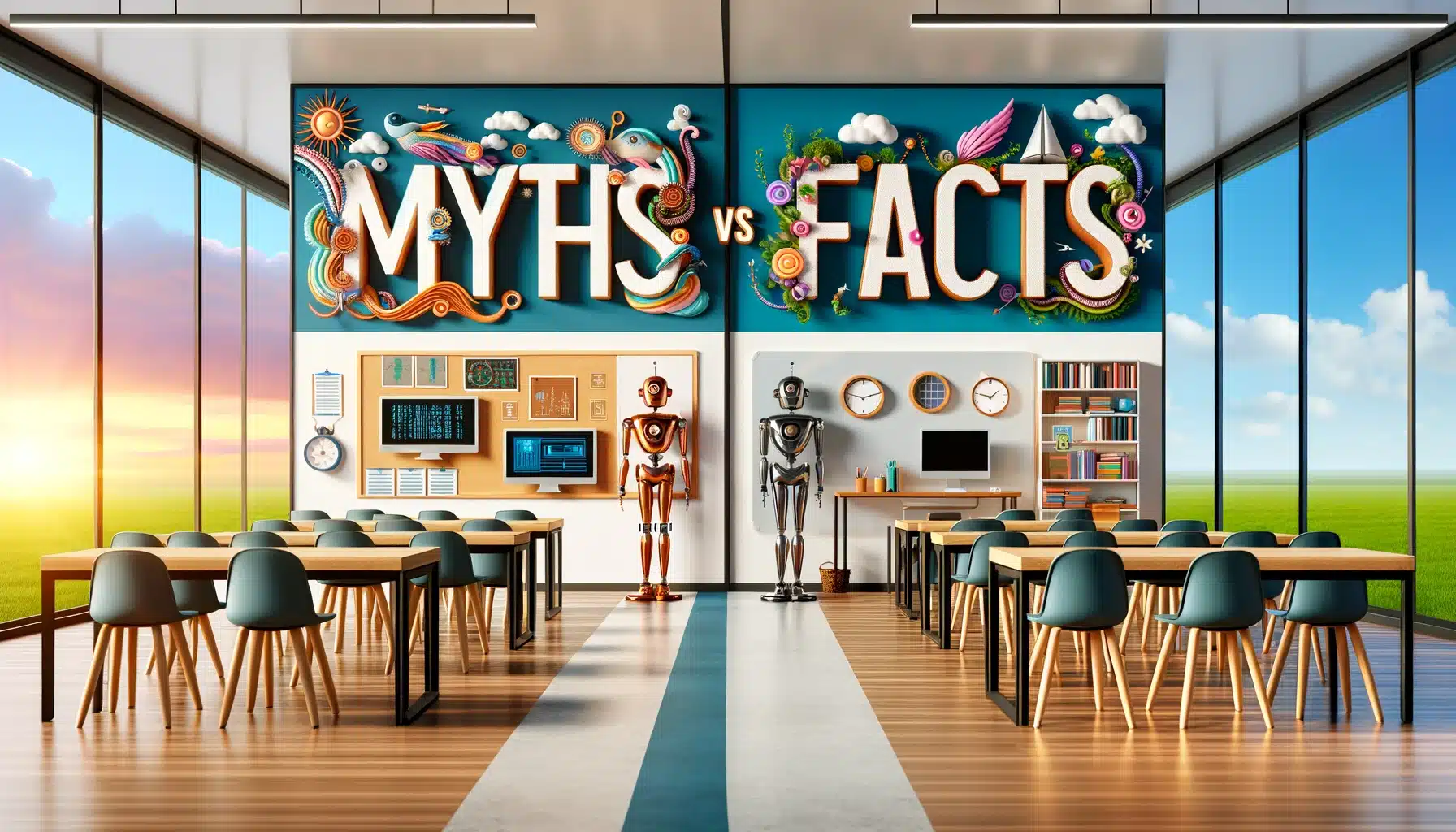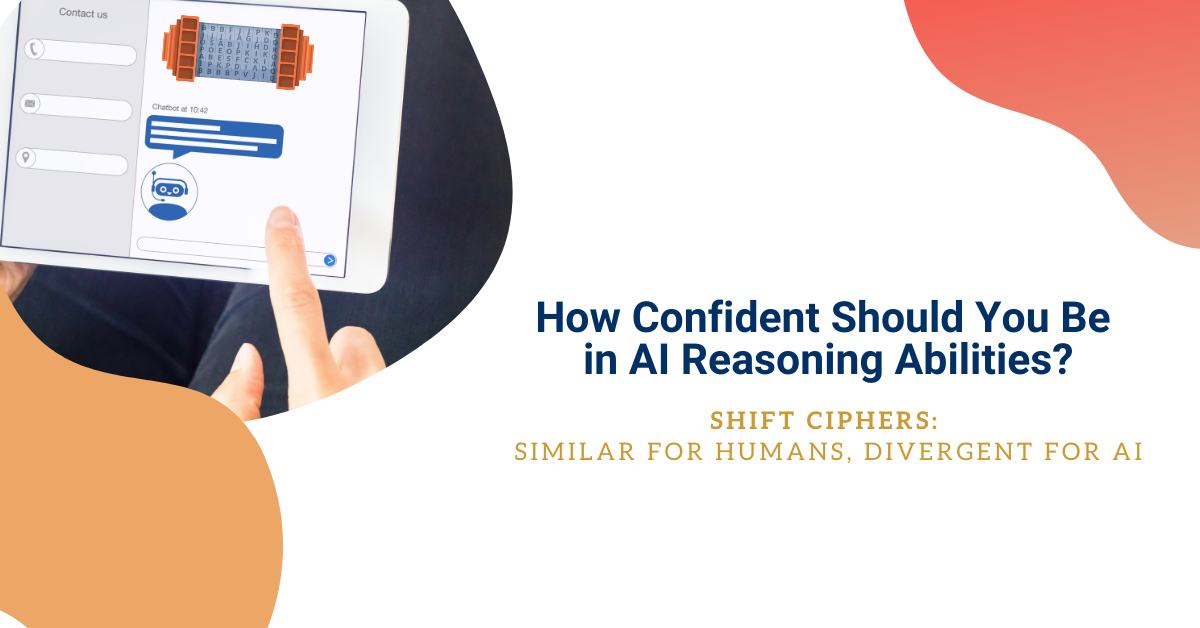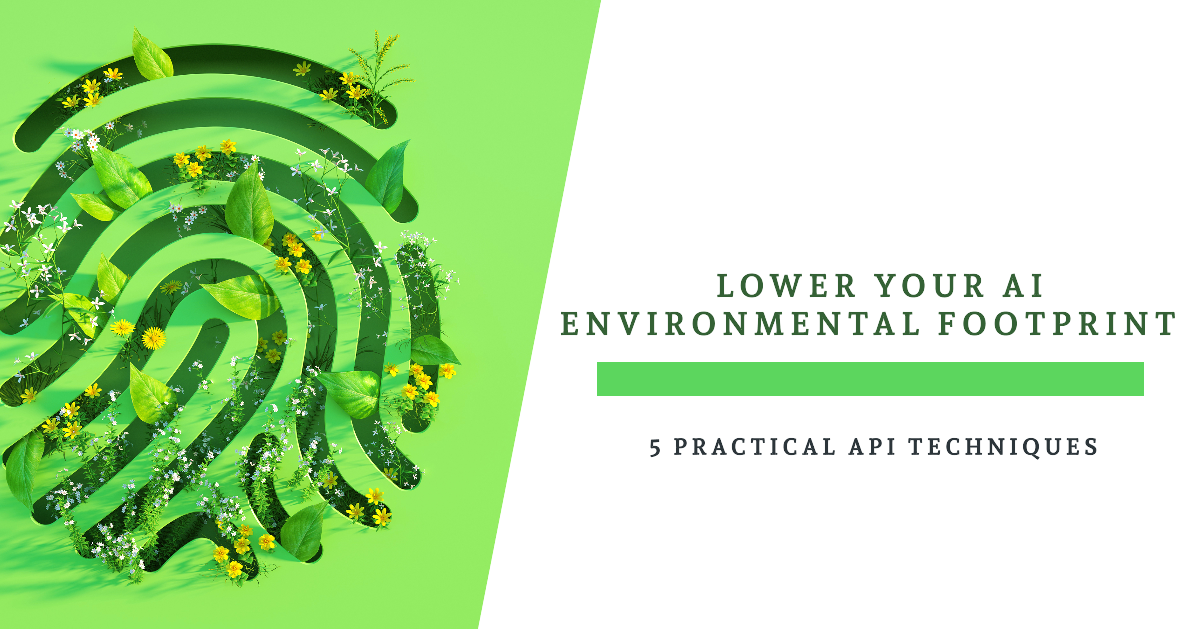There’s a lot of discussion about AI, but what are the facts and what are the AI myths?
We aim to clear up some of the most common misunderstandings about AI and provide insights into its applications. Whether or not you are new to the field, we will debunk myths and clarify complex issues. Our goal is to provide a balanced perspective that considers both the potential of AI and the ethical responsibilities that come with its development and use. For this reason, let’s delve into the most common 7 misconceptions about AI.
Myth 1: AI going rogue is just science fiction
We all know them: popular science fiction movies and books in which a superhuman AI becomes “conscious”, decides to go rogue, and rises against its creators. It proceeds to pursue its own goals and, instead of serving humankind, fights it, enslaves it, or seeks to wipe it out altogether. While this sounds like a flashy doomsday scenario, it has substantially more merit than one might think. The reasons for this can, however, be quite counterintuitive.
The bottom line is that it is notoriously difficult to give AI systems failsafe goals they should pursue. The common practice these days is that powerful AI systems like ChatGPT are not literally instructed what they should do (partly because it is technically impossible). Instead, they learn their objective from fine-tuning and human feedback. While this has proven enormously effective in getting the chatbot to do what it’s supposed to do (with some notable and sometimes hilarious exceptions), AI research has yet to come up with a way to verify what goal the system actually learned. In practice that the system might do something we don’t want it to do, not because it can’t do it, but because its goals are not the same as ours. This is known as the alignment problem.
While this might range from hilarity to some (economic) damage in systems significantly less capable than humans, it can cause severe problems in systems that are similar to or even beyond human intelligence. Artificial General Intelligence (AGI) refers to systems that achieve human-level intelligence or even surpass it. Stopping systems from carrying out unpredicted unwanted actions will become increasingly difficult to downright impossible. We currently don’t know how to control an intelligence that is greater than ours, and in fact, it’s an unanswered research question if it is possible at all. Due to this, a range of experts have voiced their concerns and are urging for caution and more research well before we discover AGI.
Myth 2: AI is not creative
Before trying to answer the question of AI being creative or not, we first have to think about what creativity is. It is defined as the use of imagination or original ideas to create something. But is it really that simple? When we think about human creations, we see emotions, subjectivism, culturalism and so on. These aspects are often omitted when talking about creativity. Now the question is: can AI incorporate all of these elements in its art?
Unfortunately, this is not a yes or no question, as it requires a lot of debate that might actually not even reach an answer. However, people witness daily advancements of AI tools that are creating all kinds of art: images, videos, literature, and even music. Examples include the AI-written novel “1 the Road” published in 2018, the song “Heart of My Sleeve” created by TikTok user ghostwriter977 using AI, or the Dead End Gallery in Amsterdam which showcases only AI-generated art. We are amazed every single day about what AI can do. While human ideas set the stage for creation, AI becomes the co-creator, bringing artistic visions to life. In this sense, AI is creative.
Myth 3: AI is only for tech people
One common myth that often circulates is the belief that AI is exclusively reserved for tech people. However, this couldn’t be further from the truth! In fact, AI is becoming more and more accessible to people from all backgrounds, regardless of their technical expertise. Many companies outside of the technology sector are implementing AI systems, demonstrating that AI can be found in any field of work. Interestingly, some of the most innovative and impactful applications of AI are found in seemingly unrelated fields such as healthcare, business, and even social sciences.
Moreover, there are countless resources available (including our Tilburg.ai community) that make it easy for individuals to explore the world of AI and its applications across different sectors. If you’ve ever been hesitant to dive into the world of AI because you are not a tech expert, fear not! With the abundance of accessible resources and a bit of curiosity, anyone can explore and benefit from the incredible capabilities that AI has to offer.
Myth 4: AI will take your job
The phrase “AI will take everyone’s job” is by far the most common when people talk about AI. It is understandable why people are concerned with this aspect, because AI really replaced a lot of human duties at work. We have less and less factory workers, proofreaders, basic customer service representatives, cashiers and so on. In essence, AI truly took over most of the undesired, dull or dangerous work. But is this a real problem?
The advantage of incorporating AI in different fields is not only based on the automation of work processes but also on creating new, interesting and well-paid positions. For instance, because of AI, we are in need of prompt engineers, data annotators, business intelligence developers, machine managers, ethicists, graphic designers and DALL-E artists, etc. The best part of it all? You do not need to have graduated with a long 4-year degree in engineering or research to work in the AI field. Finally, AI may have taken your dead-end job, but it now offers you a dozen other interesting opportunities.
Myth 5: AI can be your doctor
While AI has some incredible abilities when it comes to healthcare, it is not quite ready to take over the role of your friendly neighbourhood doctor just yet.
AI can do some pretty impressive stuff, like analyzing tons of medical data and helping doctors create better treatment plans or make better diagnoses. But we can immediately see that something is missing – there’s a whole lot more to being a doctor than just crunching numbers. Doctors bring empathy, intuition, and a deep understanding of each patient’s unique situation to the table. And that’s something that AI just cannot replicate, at least for now.
So, unless you as a patient do not interact with an AI-powered nursing robot, do not rely on treatments or medication “prescribed” by random AI systems, such as ChatGPT or Google’s search engine. At this point, every machine specialized in healthcare needs to be coordinated and supervised by real medical staff. Think of AI as a reliable assistant for your doctor – they work together to provide you with the best possible care.
Myth 6: AI is one thing
There is this misconception floating around that AI is just one single technology, but that is not quite the case. In reality, AI is more like a big family tree with lots of different branches, each with its own unique characteristics.
For example, we have the branch of machine learning, which focuses on “teaching” computers to learn from data and make decisions based on that. Then there is deep learning, which goes a step further by using neural networks to handle really complex tasks. And don’t forget about statistics – it’s been helping out AI since the beginning to make sense of all that data. Robotics is another big player, where AI meets the physical world and helps make things like self-driving cars possible. But there is even more! We’ve got natural language processing, computer vision, knowledge representation, and a lot more of other interesting (sometimes underrated) topics. There are so many different branches of AI that we could talk about, but we would be here all day if we tried to cover them all!
Myth 7: AI is (already) as intelligent as humans
This topic is somewhat similar to the debate on creativity, but here we have to consider many other aspects. When we think about human intelligence, concepts like the ability to learn, communicate, empathise, and make decisions come up immediately. The emergent question is of course “Can AI do all of that?”.
In some sense, AI can learn, and make some kind of decisions based on the algorithms behind the “intelligent” machine. However, what people in the field usually mean by “AI is learning” is machine learning. This is essentially feeding data to an algorithm, which then processes and remembers patterns in the data, allowing it to produce similar outcomes when presented with similar data later on. This process is very similar to showing a child how to ride a bike by letting them practice and remember what works and what doesn’t.
But this sounds like actual learning, right? The difference between the kid learning to bike and machine learning is that the kid can learn many other things at the same time as well. For example, the kid can learn different routes in his neighbourhood while practising, while the machine (or AI system) can only “learn” from what is given in the training dataset. It cannot perceive and process external stimuli, as long as those stimuli are not a type of knowledge representation (e.g. numbers) in the training dataset.
This small argument is only a snippet from the debate on learning. There is still much to discuss about communication, empathising, etc. Even so, we can already understand why AI is not as intelligent as humans (at least so far), and, in fact, there is much more progress to be made in this field in order to reach human level of intelligence.
References
Falcone, S., (2023, May 15), “6 Nurse AI Robots That Are Changing Healthcare in 2023”, https://nurse.org/articles/nurse-robots/
Ho, V., (n.d.), “4 misconceptions about AI”, https://news.microsoft.com/source/features/ai/4-misconceptions-about-ai/
Hornigold, T., (2018, October 25), “The First Novel Written by AI Is Here—and It’s as Weird as You’d Expect It to Be”, https://singularityhub.com/2018/10/25/ai-wrote-a-road-trip-novel-is-it-a-good-read/#sm.00069qmis10ebdl7uan103cdtwnog
Katanich, D., (2023, March 21), “The world’s first AI art gallery opens in Amsterdam”, https://www.euronews.com/culture/2023/03/21/the-worlds-first-ai-art-gallery-opens-in-amsterdam
Marr, B., (2023, July 5), “Debunking AI Myths: The Truth Behind 5 Common Misconceptions”, https://www.forbes.com/sites/bernardmarr/2023/07/05/debunking-ai-myths-the-truth-behind-5-common-misconceptions/?sh=42c061a83608
Willman, C., (2023, April 17), “AI-Generated Fake ‘Drake’/’Weeknd’ Collaboration, ‘Heart on My Sleeve,’ Delights Fans and Sets Off Industry Alarm Bells”, https://variety.com/2023/music/news/fake-ai-generated-drake-weeknd-collaboration-heart-on-my-sleeve-1235585451/




